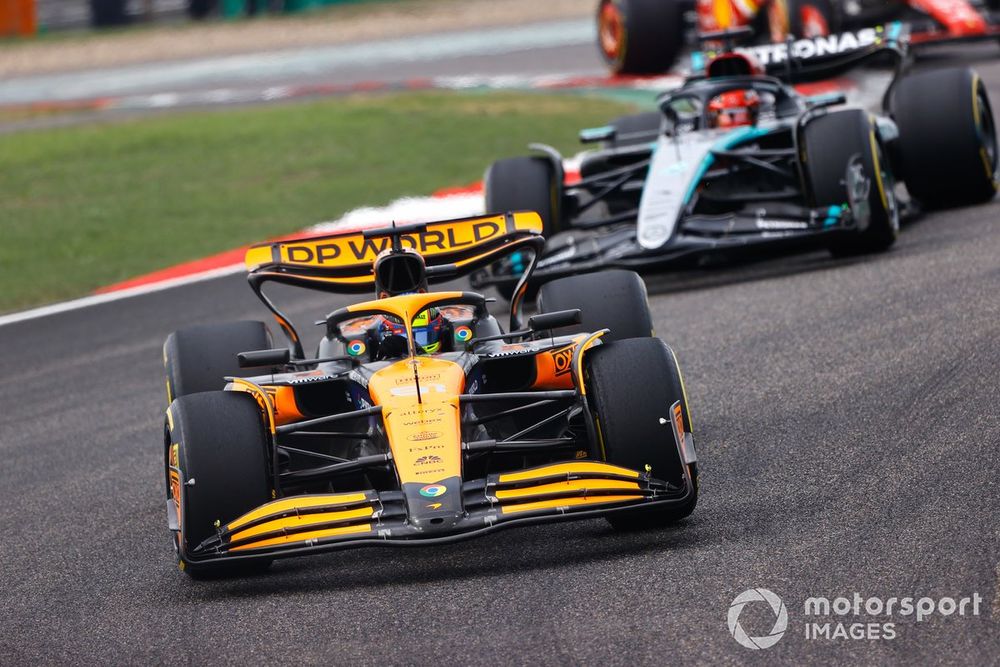McLaren rolled out several major sets of upgrades at last year’s Austria and Singapore rounds that completely turned around its fortunes, going from a midfield struggler to a team that could fight for podiums with Ferrari and Mercedes over the second half of the campaign.
In the early races of 2024, McLaren managed to consolidate its position and even move ahead of Mercedes. But at the launch of its MCL38 in February, the team already said it had more promising development projects in the pipeline that it couldn’t finalise in time for the launch version.
“This upgrade will not be as big as the two that we had delivered last year in Austria and Singapore, but it should be a decent step,” Stella said. “It should be noticeable.
“I cannot say much more than that, because otherwise, we talk about numbers. With that, I would like to keep confidential.
“But let’s say not as big, probably as Austria and Singapore, but noticeable – if things correlate with our expectations, with the wind tunnel numbers, for instance, and with the computer simulation.
“It’s always a big if, because even if the hit rate of this correlation has been good over the last 12 months, there are always possible surprises.”
Oscar Piastri, McLaren MCL38, leads George Russell, Mercedes F1 W15
Photo by: Andy Hone / Motorsport Images
McLaren’s main weaknesses – long, low-speed corners, tyre degradation and aerodynamic efficiency- are three key areas that the team tried to address last winter but are still prevalent on its 2024 car, with its Miami updates a first attempt at further mitigating them.
Nevertheless, the team has again surprised itself this year with its on-track performances, with Lando Norris scoring second place in the Chinese Grand Prix on a Shanghai circuit that was supposed to be among its weaker venues.
Instead, Norris and team-mate Oscar Piastri struggled more at Suzuka, just seven months on from taking a double Japanese GP podium last season.
Click Here to Read the Full Original Article at Autosport.com – Formula 1 – Stories…

